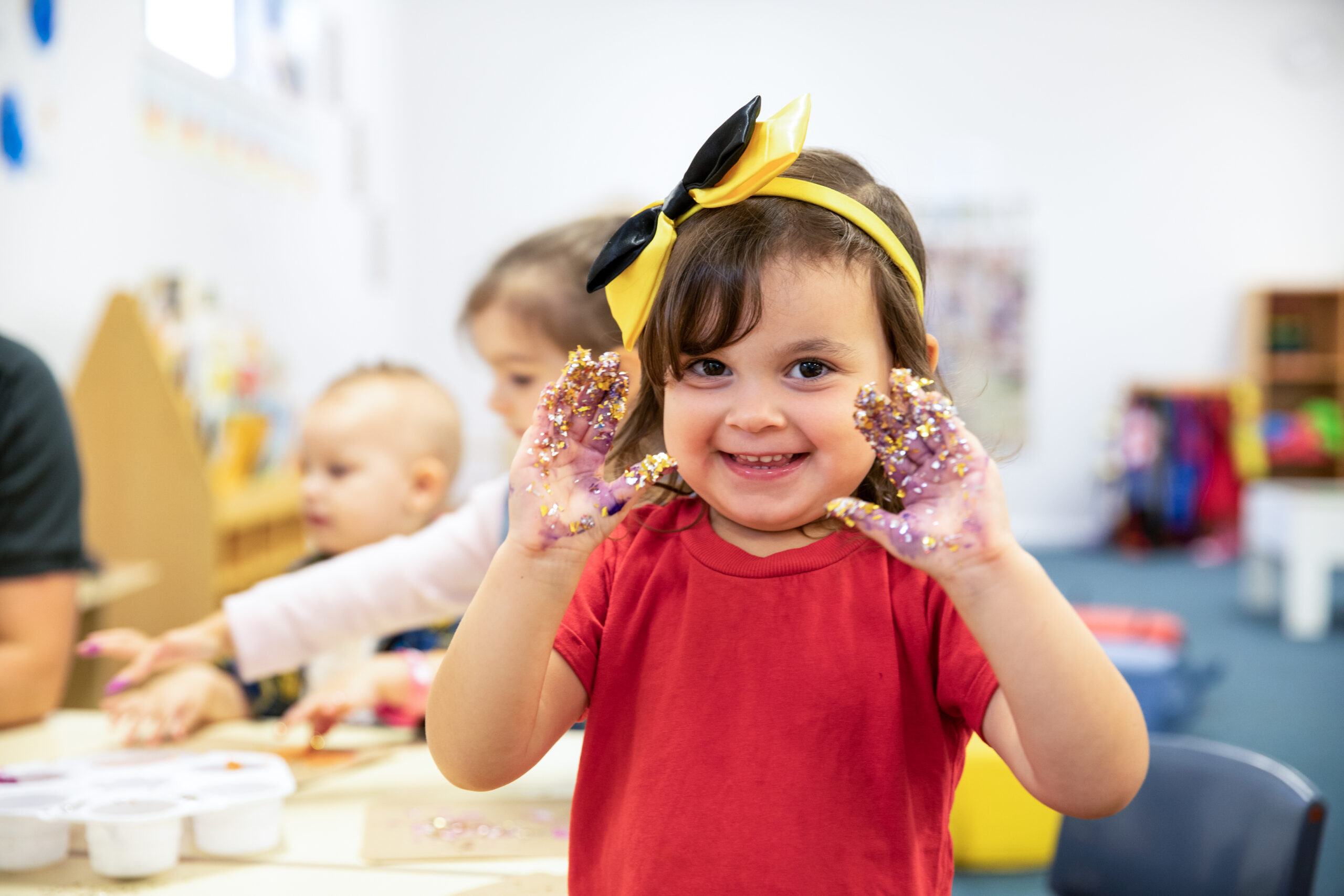
Sensory play, messy play or creative play are just some of the terms used to describe a lot of fun!
As a child our senses are a vital foundation of how we experience the world around us, and sensory-based play is an essential part of babies, toddlers and preschoolers' learning development.
So, what is Sensory Play?
Sensory play provides children with an experience that stimulates their senses, encouraging them to explore, discover, and learn about the world around them.
These activities engage senses, such as touch, sight, smell, taste, and hearing. From babies to preschool-aged children, sensory play is not only a way in which a child learns about their environment but also crucial for their overall development.
Sensory play is a large part of our Lifelong Learning Curriculum and aligns with the Australian Children's Education and Care Quality Authorities (ACECQA) Quality Area 1, Educational programs and practice. Quality 1 emphasises the importance of providing experiences where educators are child-centred, providing stimulating and maximising opportunities for enhanced and extended learning and development for each child. Sensory play also plays a part in ACECQA Quality Area 3, focusing on supporting children's physical, emotional, and cognitive well-being; this is why sensory play is vital in our centre's daily routines. All children can explore various materials, textures, and experiences under the guidance of our trained educators and teachers.
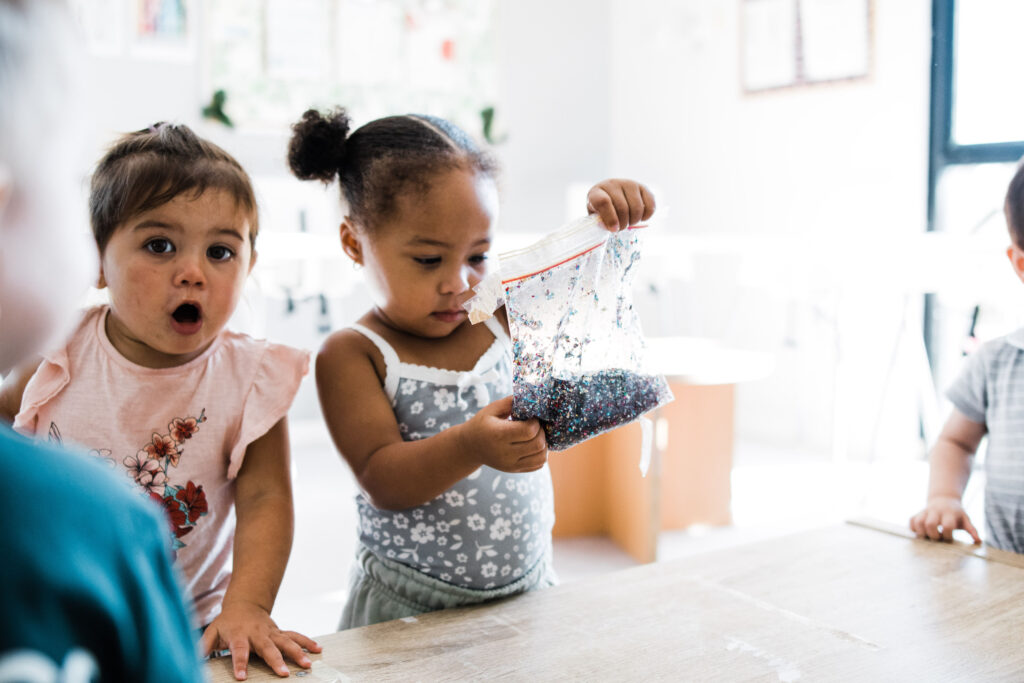
How does Sensory Play help my child grow?
Babies 0-1 years old: Sensory play is vital for babies as it helps to build their cognitive, social, and physical skills. Infants develop hand-eye coordination, fine motor skills, and spatial awareness by engaging their senses.
Activities such as playing with soft toys, exploring different textures through touch, and listening to soothing sounds stimulate their sensory development. Sensory play also contributes to language development, as babies begin to associate sounds with objects, fostering early communication skills.
At Papilio Early Learning Hornsby, our Educators in the nursery room, ensure sensory play is included in our programs daily.
Steph Gale, Lead Educator in our Junior Nursery Room, for Papilio Hornsby explained, “We integrate sensory play into various activities for the babies in our nursery, which is a central theme of our Lifelong Learning Curriculum's Healthy Beginnings program. Our babies adore the activities we offer, such as water play, goop, ice painting, and scented play dough, as it allows them to engage their senses during all stages of their physical development (even during tummy time, sitting, or supported standing).”
Our centre activities are designed by the centre teams in conjunction with the Lifelong Learning Curriculum, Early Years Learning Framework, and the requirements of the babies in their care’s individual needs and developmental stages.
Steph continued, “Sensory play is a crucial aspect of a baby's development and how they perceive and learn about the world. As educators our role is to facilitate this process and enable our babies to achieve their full potential.”
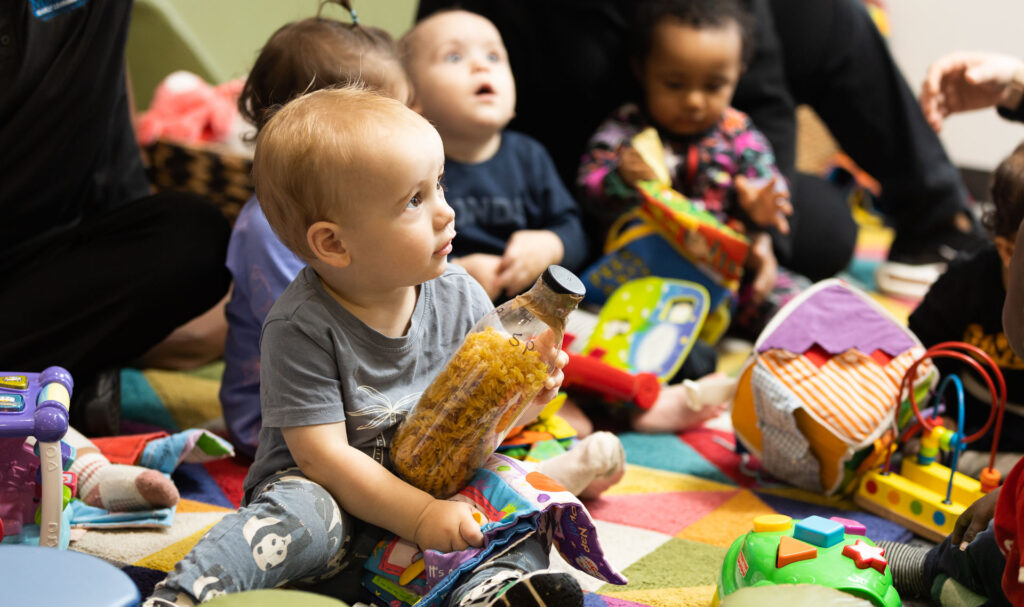
Toddlers 1-3 years old: During the toddler stage, children are curious explorers, eager to make sense of the world. Sensory play supports cognitive and sensory development while enhancing creativity and problem-solving abilities.
Activities like finger painting, water play, and sensory bins filled with materials like sand, rice, or beans allow toddlers to engage multiple senses simultaneously. They learn about cause and effect, practice coordination, and develop vocabulary as they describe their sensory experiences.
At Papilio Early Learning South Strathfield, the team in our Toddler rooms are experts in creative activities and experiences that keep their Toddlers engaged and learning.
Rocelle Barraquio, 3IC and Lead Educator at Papilio South Strathfield shared; “through hands on learning experiences, our Toddlers are gaining the confidence they need as they explore all five of their senses which stimulates their curiosity. Sensory play allows our Toddlers to enhance their creativity and imagination as they create their own objects and manipulate with their hands which is vital to their development.”
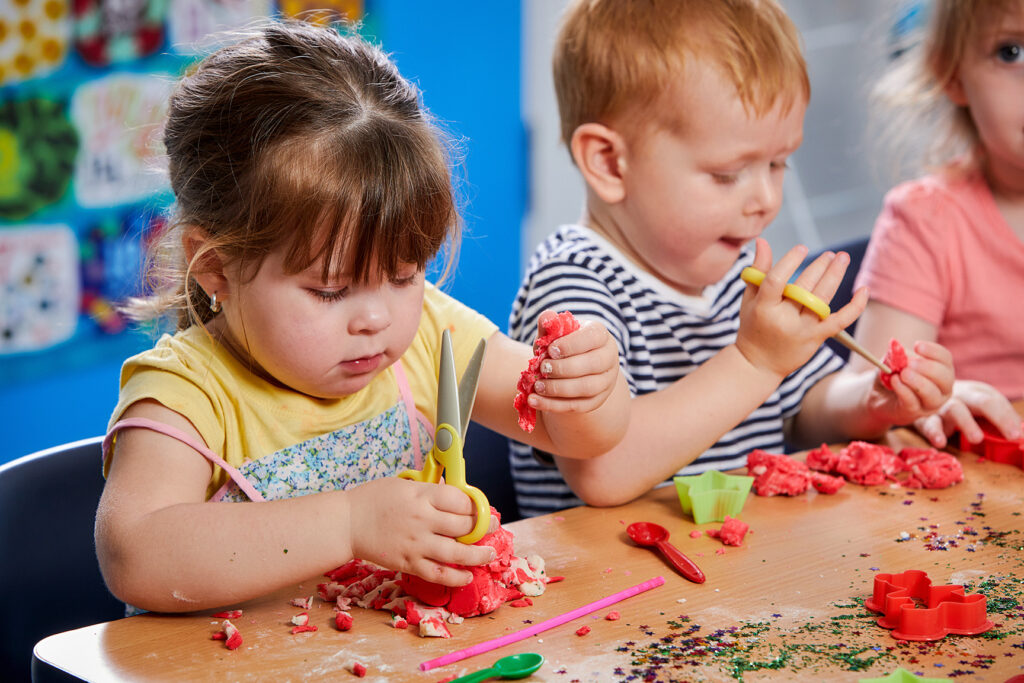
Preschool/Kindergarten 3-5 years old: Preschoolers continue to benefit significantly from sensory play, as it aids in refining their motor skills, social interactions, and cognitive abilities. Children develop fine motor and problem-solving skills by engaging in sensory activities like building blocks, moulding clay, or playing with musical instruments.
Sensory play promotes cooperation and sharing as children engage in collaborative activities, fostering social growth.
At Papilio Early Learning Belrose, our Teachers in our Preschool rooms incorporate sensory play into their School Readiness program and term projects.
Jasmine from Papilio Belrose explains, “Sensory development is vital from an early age as it plays a key part in enhancing the use of your child's senses by incorporating and using assorted colours, textures and noises; This all stems from our senses which is a key element in our day-to-day roles. This holistic learning approach encourages children to play safely and engage with their surroundings as well as improve their brain development and be able to retain what they have learnt.”
We believe children who learn through play get more enjoyment out of it which is what motivates us to want to do more of it. There are many ways to incorporate sensory play into teaching.”
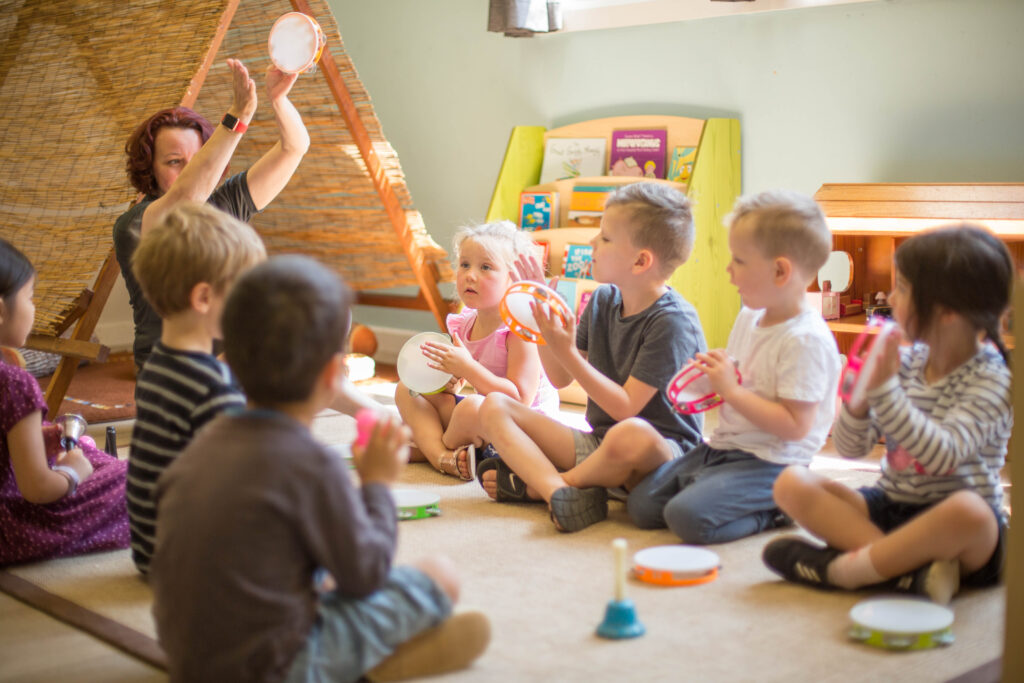
Facilitating Sensory Play Home
Creating sensory play-based activities at home is an easy way to assist your babies, toddlers or young child's development.
We have some fun activities that you can try at home!
Sensory Bottles: Fill empty plastic bottles with various materials, such as coloured water, glitter, beads, or buttons. Secure the lids tightly and let your child shake, roll, and observe the fascinating contents.
Nature Sensory Tray: Collect natural items like leaves, flowers, shells, and pebbles. Create a sensory tray by arranging these items and encourage your child to touch, smell, and explore the textures and scents of nature.
Sensory Painting: Provide varied materials for painting, such as sponges, feathers, or cotton balls. Let your child dip them in an assortment of colours and experiment with different textures on paper or canvas.
Sensory Playdough: Make homemade playdough using flour, salt, water, and food colouring.
Add scents like vanilla or essential oils for an additional sensory element.
Allow your child to squeeze, mould, and create with this pliable material.
*Please note: Sensory play in children under 3 often includes children placing objects in their mouths. Please ensure the sensory play-based environment and materials you have provided for your young child, is age appropriate and does not present a choking hazard with small pieces and are non-toxic. *
